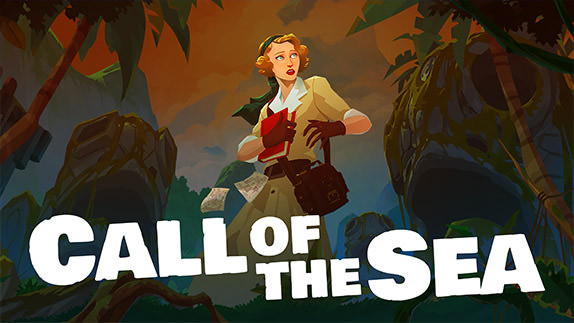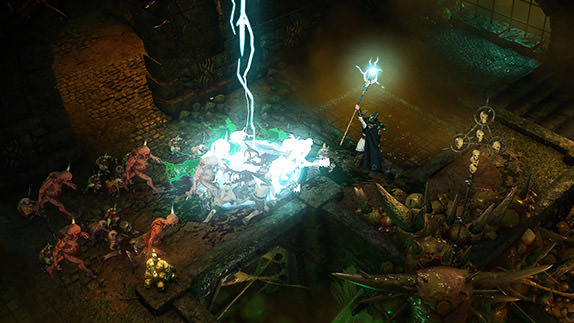Loading Human: Chapter 1 Review

 By Kevin Mitchell
Posted on November 22, 2016
By Kevin Mitchell
Posted on November 22, 2016
Without a doubt, virtual reality can push the immersion factor in games to previously unseen levels. Set in the future, Untold Games has crafted an emotionally charged sci-fi adventure focusing on complex relationships and interactions. Loading Human: Chapter 1, however, is short, pricey, and feels more like a prologue than the complete first chapter to an episodic tale.
Your father, Dorian, one of the most influential people in history and developer of the Dark Energy Engine, requires a tremendous energy source to survive. He once used his intelligence to prolong his life with the Lazarus machine to regenerate cells and prevent his aging (he is well over 100 years old), but it can no longer keep him alive. Each and every breath he takes is torture, and he must conserve what strength he has left to ensure that you complete your training at his Antarctic laboratory.
The only way to save your father is to travel light years away to collect the Quintessence, the only energy source powerful enough for him to cheat death. As Prometheus, the main protagonist, you aren’t alone in your task, as you work side-by-side with Dorian’s assistant, a genetics expert named Alice, and your AI companion Lucy. Before you ask, yes, Lucy does make plenty of references to 2001: A Space Odyssey.
Loading Human: Chapter 1 takes place across various memory fragments, told outside the restraint of chronological order. Most of the events take place in the past, exploring the relationship that slowly develops between Prometheus and Alice. Although you interact with Alice and Lucy, most of the game’s dialogue comes from Prometheus’s inner thoughts. The game supports both PlayStation Move controllers and the DualShock 4, but I found myself using the Move controllers for the added touch of immersion. You are free to interact with just about every single object that you come across.I never thought I’d play a game where the playable character had so much to say about essential bathroom items, such as hair conditioner. It’s quite easy to drop items, as you must hold a trigger on the Move controller to continue to keep it in your hands. If you drop it and immediately pick it back up, Prometheus will repeat everything he just said.
If you find yourself wanting to explore the lore within the world further, you can read news stories on futuristic tablets scattered around the laboratory and habitat areas. The sheer amount of text you can read is also impressive and disheartening as tends to be blurry in most PSVR titles. I became slightly disoriented reading that much paragraph text at one time. Considering the amount of voice work already included in the game, perhaps Prometheus should have voiced some or all of the text as well.
The controls in Loading Human: Chapter 1 are cumbersome at best, and takes until the very end of the four-hour chapter to get used to it. Even when using the Move controllers, there is no option to teleport around the environment, which is a solution that many games have employed. Instead, you hold the Move button to walk and angle the controller to your left or right and press another button to turn. Leaning your head while walking will slightly alter your path, helping you navigate around objects in the environment, such as a chair or the edge of a table. To move backward or even pull an 180-degree turn, you point the Move controller behind you (over your shoulder). It completed the entire game from a seated position but added my actual height during the calibration to get an appropriate arm's-length for Prometheus.
Unlike other first-person VR games where detached floating hands only represent the player, you have a complete body in Loading Human. With it, you aren’t able to reach items outside of arm's length. It adds a touch of realism to the experience, but having to walk around a table to reach a plate or screwdriver just out of range is slightly annoying, but considering the type of experience Untold Games is trying to convey, I understand the design decision.
The pacing in the game is relatively slow, and I felt that the amount of time you spend walking between the habitat area, the laboratory and the greenhouse comprise most of the game. It doesn’t help that the game does a poor job at directing players to where they need to go at any given moment. While I’m not asking for an objective marker, but at times the hints are overly simplistic or doesn’t convey what is being asked of the player.
For example, you lose power while stuck inside your living quarters quite early in the game. You are supposed to grab a flashlight and locate the door code to unlock the door manually. However, the hint system (triggered by any of the face buttons) kept telling me to locate the door code, which is something I couldn’t do without being able to see in the dark. This is where the flashlight comes in handy, but since I was already walking around when the power was lost, I never noticed it was there. Heck, even dropping or throwing the flashlight will have you blindly searching for it on the floor. Clearly, this is only one example, but there are other moments such as finding the correct computer terminal in the laboratory, where I ended in the completely wrong room and was forced to trial and error my way through it.
As the opening act to an episodic experience, your tasks in the game are rather mundane. For a sci-fi adventure, I would expect that I would be doing more than collecting leaves to make tea or selecting Alice’s favorite wine and food by reading what she wrote in her diary. By the end of Chapter 1, it became apparent that your relationship with Alice is the focus for the game, but with the way it ended, I’m not sure how the next Chapter will build upon it. There are a couple of moments where you can choose how to interact with Alice, such as shaking her hand or awkwardly leaning in for a first-person kiss (don’t lean too far in or you’ll wind up inside her skull). Depending on what you do, it could affect something later on in the Chapter.
Simply Put
Loading Human: Chapter 1 is an intriguing way to experience human relationships in a virtual sci-fi setting, but I kept wanting more sci-fi elements. The control scheme is overly cumbersome, and there is only a handful of meaningful interaction between your father and Alice. There just isn’t enough game here to justify the price tag. There are some neat moments, but I didn’t feel invested in the world or care enough to pick up every single object. or even play through fragments multiple times for trophies.
Note: Loading Human: Chapter 1 was reviewed on PlayStation VR. A digital copy of the game was provided by the publisher/developer.




